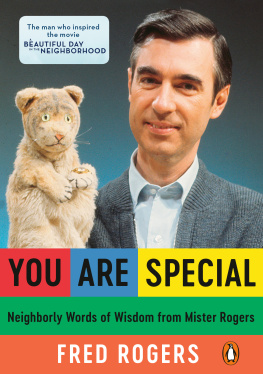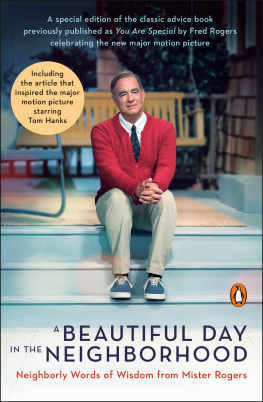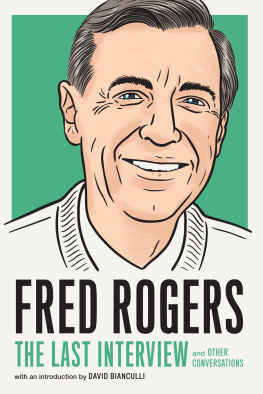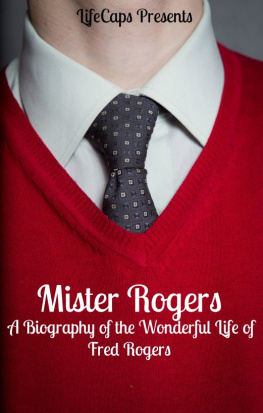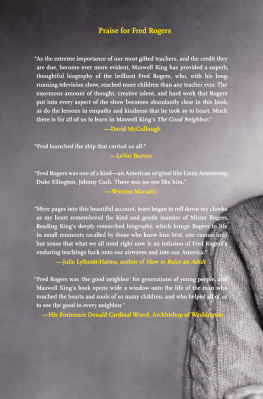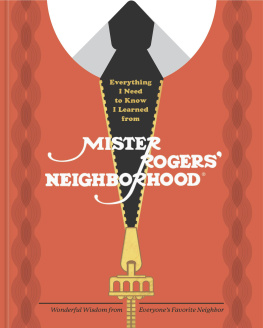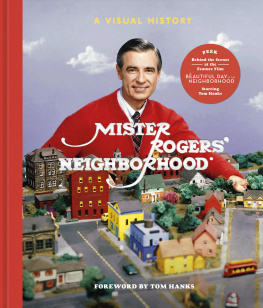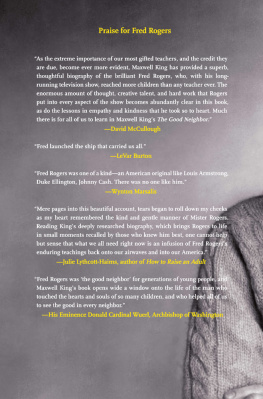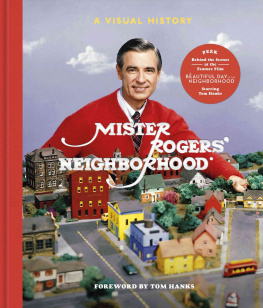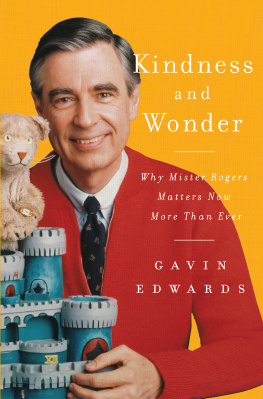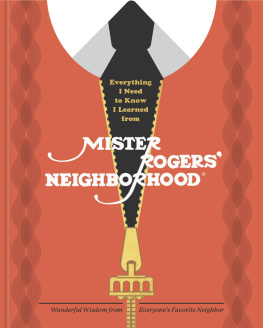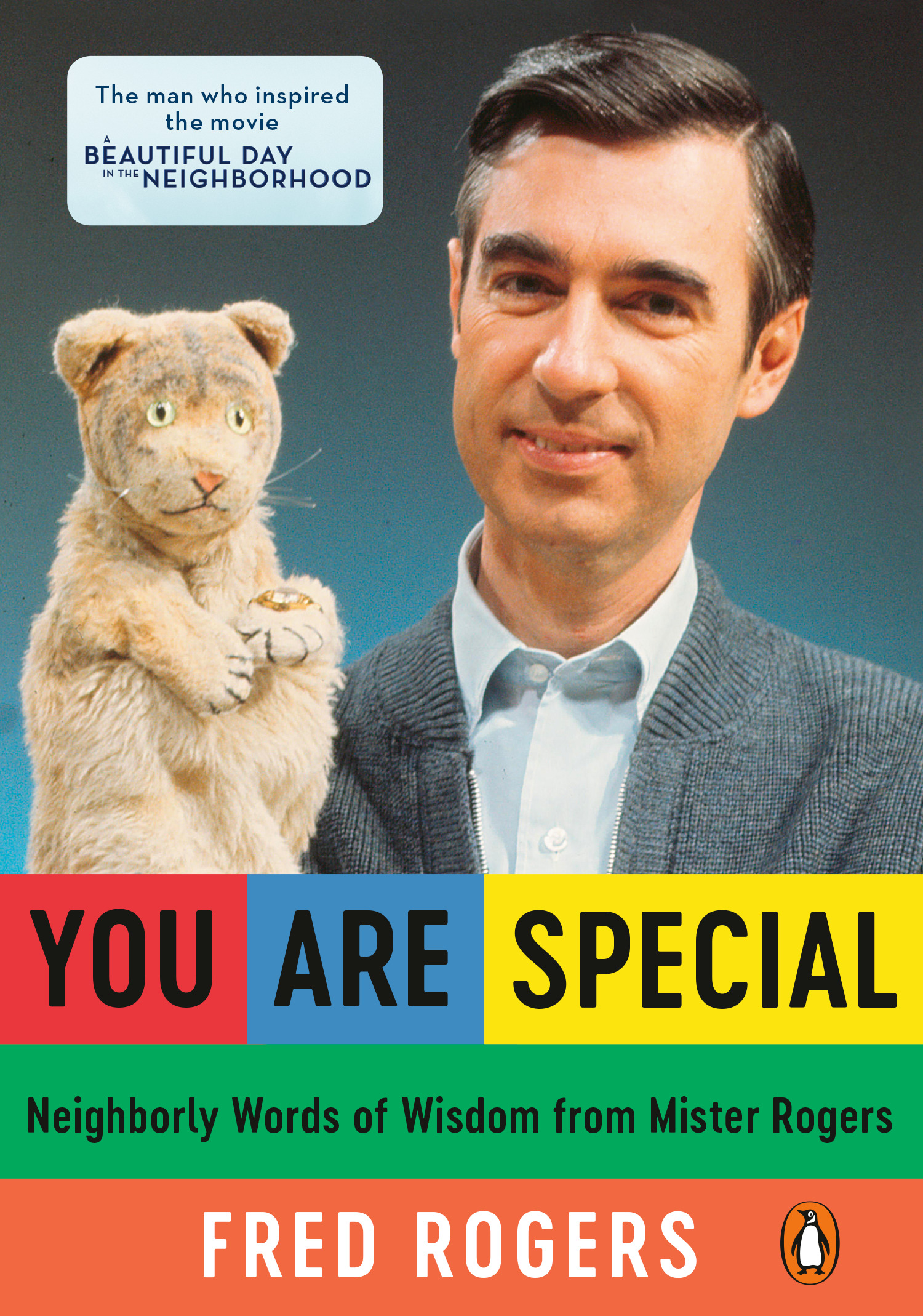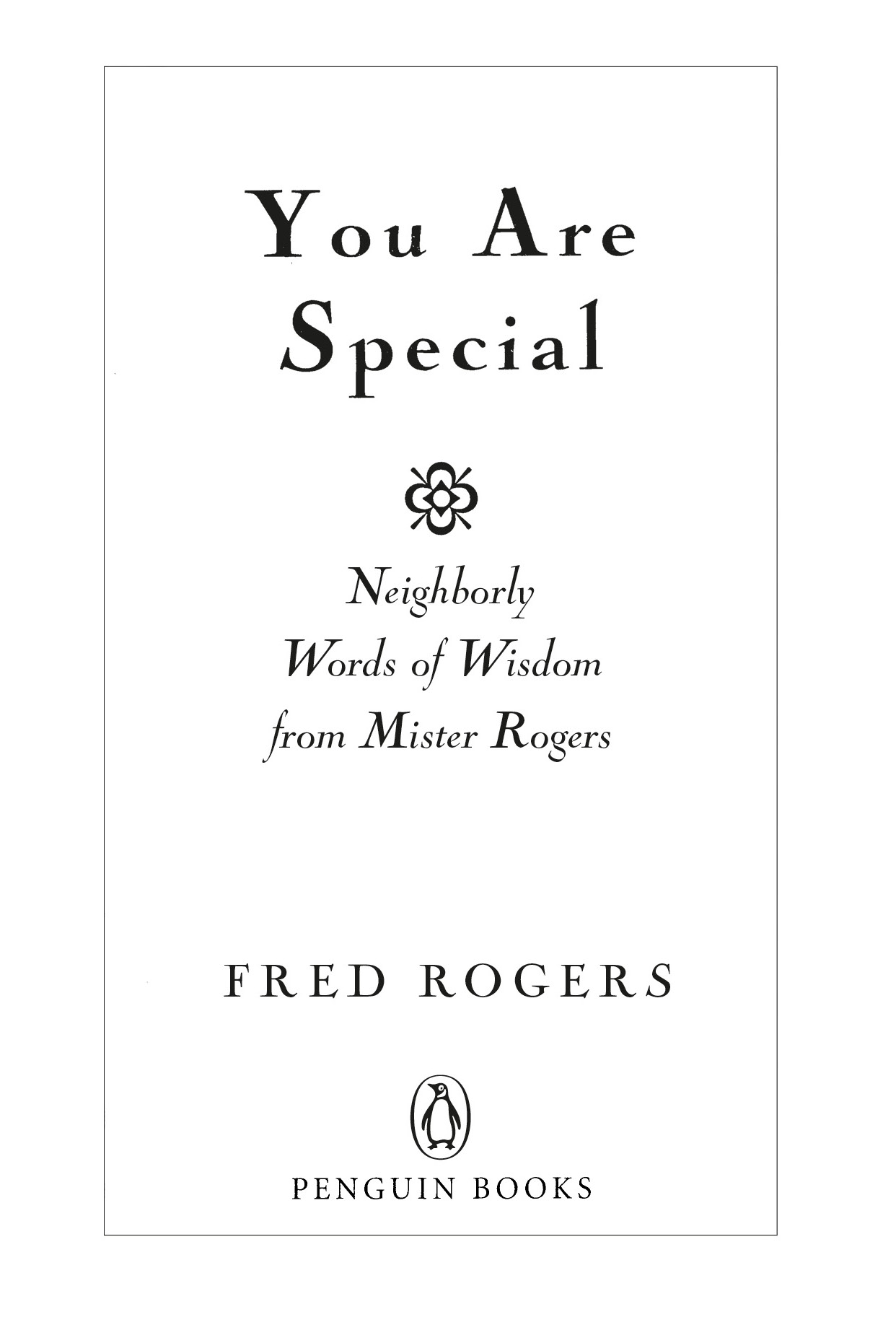Contents
PENGUIN BOOKS
YOU ARE SPECIAL
Fred Rogers (19282003) was a producer, writer, magician, puppeteer, minister, husband, and father who began working in childrens television in the 1950s and created the PBS program Mister Rogers Neighborhood. He pioneered programming that spoke, with respect, to the concerns of early childhood, not as adults see it but as children feel it. For his work, he received the Presidential Medal of Freedom, a Peabody Award, and numerous other honors. The Television Hall of Fame inducted him in 1999, and the Smithsonian Institution displays one of his sweaters as a treasure of American history. He founded Family Communications, Inc., now Fred Rogers Productions, a not-for-profit company that continues to develop programming, special projects, and materials that help children learn and grow, including Daniel Tigers Neighborhood.
Also by Fred Rogers:
Dear Mister Rogers, Does It Ever Rain in Your Neighborhood?: Letters to Mister Rogers
Dedicated to all of the children-of any age-who
have found our Neighborhood and have been willing
to spend time growing right along with me.
ACKNOWLEDGMENTS
Just as we are a reflection of all the people who have touched us as weve lived, so, too, is our work. This book certainly represents what Ive learned over many years from people who have touched my life along the way. Id like especially to acknowledge some of them.
Everyone at Family Communications, Inc. (FCI), who has worked with me for the past twenty-seven years. Our company is like a family, and each persons work and enthusiasm have brought a valuable contribution to the development of this book, just like everything else we do. Over the past fifteen years, our writings have been greatly enhanced by the wisdom, sensitivity, and editing talents of Barry Head. Dennis Ciccone, the latest member of Family Communications Inc., gave us great assistance with the development of this book. He and Hedda Sharapan, one of the earliest members of the FCI family, who helps in everything we do, devoted hours of dedicated work collecting the quotations and organizing the manuscript.
Our editor, Mindy Werner, and the other people at Viking whose persistence and encouragement have made this particular collection possible.
Michael Jacobs, who got us started in this project.
My special thanks to all of these peoplemy teachers, my friends, and my family: Joanne, John and Mary, Jim and Tory, Alexander and Douglas. These past forty years of producing television programs and writing for children and their families have been very, very special.
Dear Reader:
What is essential is invisible to the eye.
What does that mean to you?
That saying is framed and sits on a table right beside me in my Neighborhood office. Everyone who sees those words from Saint-Exuprys The Little Prince reads them with his or her own eyes ... and with whats invisible and essential behind those eyes. Just like with the passages in this book, you will bring your own experiences, your own beliefs, to every page. Thats what will enrich these words beyond measure.
The ideas in this collection have come from things that I have learned and thought about for a long time. They come, too, from many people whom I have met along the way. Ive been fortunate to have had some extraordinary teachers who have given me some powerful words that helped me learn about life and about childhood. One of those teachers was my grandfather, the one Im named for: Fred Brooks McFeely. He wasnt a teacher by training, but he taught me through his love. Because he cared so much about me, I wanted to learn from him. I can still remember his saying to me, Freddy, I like you, just the way you are. That quotation meant so much to me that Ive often shared it with our television viewers. Those Neighborhood words have very deep roots in my own childhood!
Communications for me has always been more than words. When I was just five, I found I could easily express my feelings through my fingers at the piano. And as an adult I find writing the melodies and the lyrics for our Neighborhood program has been a very important way for me to express a wide range of human emotions.
When I headed for college, I decided to work on a degree in music composition. It was during my senior year at Rollins College, in the early 1950s, that I first saw television. I was appalled by what were labeled childrens programspies in faces and slapstick! Thats when I decided to go into this field. Children deserve better. Children need better.
My first television job was in 1951. I was a floor manager for the network music programs at NBC in New York for two years. When WQED (Pittsburghs public television station) was getting started, I was invited to come back to my hometown area of western Pennsylvania to co-produce an hour-long live daily program for young people called The Childrens Corner with Josie Carey. I was also the behind-the-scenes puppeteer and organist.
To deepen what I could bring to television, I added seminary studies for eight years during my lunch hours and evenings. At my ordination as a Presbyterian minister, I was given a special charge to serve children and their families through the mass media.
Knowing my great interest in children, one of my seminary professors suggested I meet Dr. Margaret McFarland. She was the director of the Arsenal Family and Childrens Center of the University of Pittsburgh. The noted psychologist Erik Erikson, who helped found that center, has said that Margaret knew more than anyone in this world about families with young children.
Margaret became my mentor when I began graduate studies in child development. It was natural that we would invite her to be our chief psychological consultant for Mister Rogers Neighborhood. She generously carried out that duty for almost twenty-five years. Her death in 1988 was one of the major losses Ive had to deal with in my life. It was she who helped me think about the child who grew inside of me. It was Margaret who helped me really listen to children so that I could discover who they were and what was important in their lives, so that my communication with them through television could be meaningful. That kind of invisible essential is a gift nothing can ever take away ... not even death.
I care deeply about communication, about wordswhat we say and what we hear.
While our television communication might look simple to some, it really isnt. Children are not simple ... neither are adults. I have always given a great deal of thought to how I present ideas during our television visits, and Im always fascinated to hear how people have used what we have saidon television, in speeches, during interviews, and in our books. Often theyve used our ideas in creative, productive ways I had never dreamed they could be used.
So may it be with the words in this book, which have been gathered from my speeches, songs, newspaper columns, books, and television programs. Once youve read them and made them your own, may they find their place in the innermost part of youin that essential part of you that inspires you to be who you really are.
Fred Rogers
CHAPTER ONE
You Are Special

